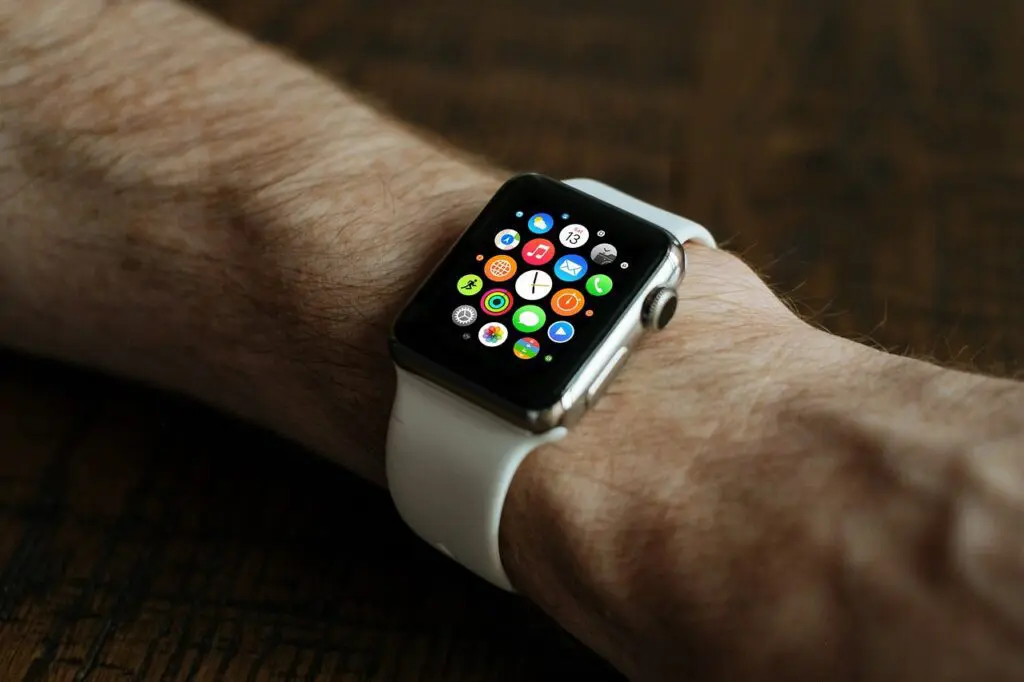| Benefit | Key Takeaway |
| 1. Improved Diagnosis Accuracy and Efficiency | AI analyzes large datasets for precise diagnosis, outperforming humans in detecting conditions like breast cancer. |
| 2. Personalized Treatment Plans | AI tailors treatment to individual patient needs, utilizing medical histories and genetics for optimal care. |
| 3. Early Disease Detection | AI detects diseases early through wearable device data, leading to improved patient outcomes. |
| 4. Improved Patient Monitoring | AI manages data from IoMT devices for continuous patient monitoring, enhancing care. |
| 5. Reduced Medical Errors | AI supports clinicians in real-time, lowering the incidence of medical mistakes and patient harm. |
| 6. Accelerated Drug Discovery | AI streamlines drug development, reducing time and costs significantly. |
| 7. Improved Clinical Trials | AI optimizes clinical trials for speed, cost-effectiveness, and efficacy. |
| 8. Reduced Healthcare Costs | AI automates tasks and optimizes processes, potentially saving billions in healthcare costs. |
| 9. Improved Access to Healthcare | AI-powered telemedicine increases healthcare access, especially in underserved areas. |
| 10. New Frontiers in Healthcare | AI paves the way for innovative healthcare solutions, including rare disease diagnosis and personalized nutrition. |
Background
Artificial intelligence (AI) is transforming industries across the board, and healthcare is no exception. Artificial intelligence (AI) has been increasingly integrated into healthcare, offering numerous benefits across various aspects of the healthcare system. The potential benefits of AI in healthcare are vast and include improved diagnosis and treatment, increased efficiency, optimized resource allocation, and reduced healthcare costs. AI technologies have the potential to revolutionize healthcare by offering personalized, accurate, and innovative solutions—the application of AI in healthcare promises to improve patient outcomes, increase efficiency, and reduce costs. Furthermore, AI can also play a crucial role in screening and diagnosing diseases, particularly in fields such as radiology and ophthalmology, and has the potential to shape modern healthcare ecosystems. Integrating AI into healthcare systems is a significant strategy to contain rising healthcare costs, support and enhance clinical decision-making, manage chronic disease burden, and support aging populations. Here are 10 benefits of artificial intelligence in healthcare that we will start seeing.

From improving diagnosis accuracy to enabling personalized treatment plans, AI brings countless benefits to patients and providers alike. This article explores ten key ways AI is improving healthcare.
Benefit #1: Improved Accuracy and Efficiency of Diagnosis
One of the biggest potential benefits of AI in healthcare is more accurate and efficient diagnosis. AI systems can detect patterns that human providers may miss by analyzing large datasets of medical images, patient records, and other health data. This can enable earlier, more precise diagnosis. For example, AI algorithms have proven adept at analyzing medical scans to detect cancer and other abnormalities. One study found that an AI system could detect breast cancer in mammograms with 98% accuracy, outpacing human radiologists and reducing doctor workload by over 60%. Researchers are also developing AI systems to analyze retinal scans to detect eye disease, CT scans to identify lung cancer and more. By automating the analysis of medical images and data, AI promises to make diagnosis faster, more efficient, and more accurate.
Benefit #2: Personalized Treatment Plans
In addition to improving diagnosis, AI can help doctors develop personalized treatment plans tailored to each patient’s needs. AI systems can instantly determine the most effective treatments for a given individual by analyzing medical histories, genetics, symptoms, and more.
For example, researchers have developed AI models to analyze cancer patients’ tumor genetics and recommend the most promising drug combinations. AI-based precision medicine platforms also analyze patient data to predict outcomes, suggest clinical trials, and more. As AI and health data analysis advances, truly personalized medicine may become a reality.
Benefit #3: Early Disease Detection
Catching diseases early dramatically improves outcomes. AI tools show promise for detecting diseases prior to the onset of physical symptoms simply by analyzing data collected from wearable devices and mobile apps. Changes in sleep patterns, exercise performance, heart rate variability, and more may contain early signals of impending illness. For example, Mayo Clinic researchers developed an AI algorithm to predict a type of hypertension based on ECG data. Other teams are developing AI models to detect heart failure, diabetes, and other conditions using data from consumer wearables. By enabling early disease detection, AI can get patients the treatment they need sooner, resulting in improved outcomes.
Benefit #4: Improved Patient Monitoring
Wearables and remote monitoring devices connected via the Internet of Medical Things (IoMT) allow doctors to continuously track patients’ vital signs, exercise, sleep, and more. However, the sheer volume of data these devices produce can quickly become unmanageable.

AI solutions can help tame the mountains of data. Machine learning algorithms can monitor patients 24/7, analyzing real-time data to flag any concerning changes. The AI can alert the care team if it detects a potential issue. Remote monitoring platforms analyze data from medical wearables to identify health changes and prioritize high-risk patients. This allows doctors to intervene sooner when problems arise.
Benefit #5: Reduced Medical Errors
According to the Institute of Medicine, medical errors contribute to over 250,000 deaths per year in the U.S. alone. AI-powered clinical decision support systems can significantly reduce these adverse events by providing real-time guidance to clinicians at the point of care.
These systems can analyze patient data against huge medical databases to detect potential errors, such as dangerous medication interactions, and alert doctors to potential risks. By serving as an always-on safety net for doctors, AI decision support tools have immense potential to lower the incidence of medical mistakes and resulting patient harm.
Benefit #6: Accelerated Drug Discovery
Developing a new drug takes over a decade and costs billions of dollars on average. AI promises to massively streamline this process by helping identify promising new medications more efficiently. Machine learning algorithms can comb through huge databases of chemicals to identify potential drug candidates. platfoforms like Google Deep Mind have been able to make drug targets and map our proteins straight from our genome. AI can also model how different compounds might interact with biomolecular targets, predicting effectiveness. For instance, Insilico Medicine’s AI-based drug discovery platform designs novel molecules and forecasts their pharmacokinetic properties in just days rather than years. AI will allow pharmaceutical companies to bring life-saving drugs to market significantly faster.
Benefit #7: Improved Clinical Trials
AI can optimize clinical trials, making them faster, cheaper, and more effective. Artificial intelligence can make algorithms that can mine patient data to identify the strongest trial candidates most likely to benefit from an experimental treatment. This results in higher-quality trials.
AI can also design better trial protocols. With its ability to accelerate patient recruitment, improve trial design, and streamline operations, AI promises to slash the time and cost of bringing new therapies to market.
Benefit #8: Reduced Healthcare Costs
The United States spent over $4 trillion on healthcare in 2020, over double the average among developed countries. Experts estimate AI could cut healthcare costs by billions while improving outcomes by automating tasks, optimizing processes, and reducing waste.
AI’s abilities in robotic surgery, virtual nursing assistants, and medical imaging analysis also promise major efficiency and cost advantages. Accenture estimates that key clinical AI applications could save up to $150 billion annually by 2026.
Benefit #9: Improved Access to Healthcare
Millions worldwide lack access to quality healthcare, especially in rural and underserved communities. AI-enabled telemedicine solutions can help bridge this gap by allowing doctors to consult with patients remotely.
Machine learning powers next-generation telemedicine robots like to interview patients and give them high-quality medical information. AI-assisted telemedicine opens up new possibilities for providing healthcare to marginalized populations.
Benefit #10: New Frontiers in Healthcare
AI may enable transformative new healthcare capabilities. In the long-term future, AI could make possible everything from augmented reality surgery assist tools to intelligent robot caretakers.
Today, researchers are already developing AI systems for futuristic applications like diagnosing rare diseases based on facial analysis, providing personalized nutrition recommendations based on microbiome data, and more.
For instance, FDNA uses AI facial recognition to help diagnose over 8000 genetic conditions through its Face2Gene app. These emerging use cases offer just a glimpse into the vast potential of AI in medicine.
The Future is Bright for AI in Healthcare
In short, artificial intelligence promises a revolution in healthcare across the board, from clinical decision-making to medical research. Machine learning has the potential to save lives by improving practically every facet of medicine. While some ethical concerns remain around data privacy and algorithmic bias, AI’s benefits appear boundless.
Exciting new applications continue to emerge, and AI capabilities will only grow with time. By embracing AI systems as allies rather than competitors, doctors can spend less time on routine tasks and more time connecting with patients. Adoption of AI in healthcare faces challenges but holds immense promise for creating a healthier world far beyond these10 benefits of artificial intelligence in healthcare.
Learn More About AI in Healthcare
- AI in health care: the risks and benefits – Medical Economics
- Artificial Intelligence in Healthcare Market Size, Report 2022-2030
- Artificial Intelligence in Healthcare: Revolutionizing Industry 2023
Support the Advancement of Healthcare AI
- Donate to the American Medical Informatics Association (AMIA) – A nonprofit advancing best practices in medical AI and informatics
- Contribute to Open Source Healthcare AI Projects on GitHub – Get involved with developing new open AI tools for medicine.
- Fund an AI Healthcare Startup – Invest in the next breakthrough AI treatment or diagnostic.
By supporting continued AI innovation, we all help build a future of more accessible, affordable, high-quality healthcare.









